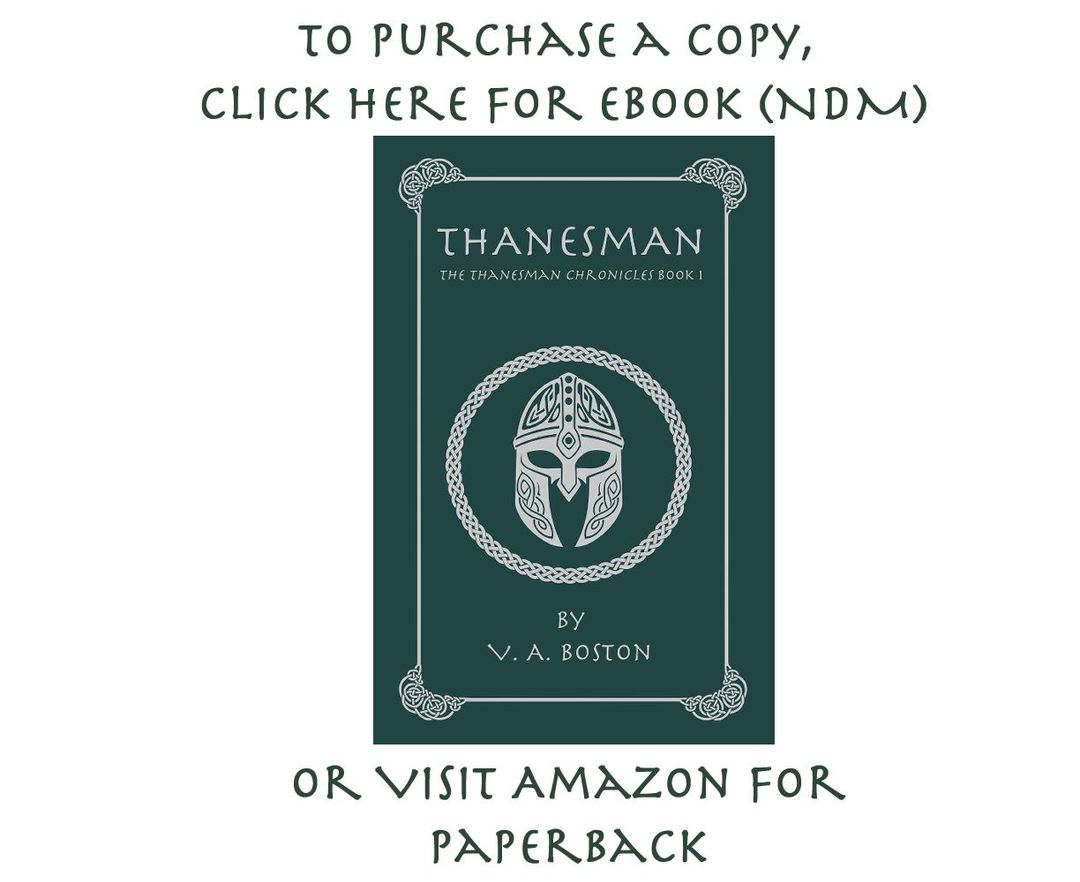The witch stared for a long while at the small pile in Witheric’s hand. Finally, she said, “The ring means nothing to me. Yes, it is gold, and gold has its uses, but few of value to me. The hair, on the other hand….”
A pang filled Witheric’s throat, his eyes darting to the small, braided lock. Memories rose, clear as the days they occurred, his throat tightening as he said, “It… it belonged to my wife.”
“Ah,” said the witch, nodding in understanding. “She is a pretty woman, I see.”
“Yes,” said Witheric, his voice distant as he drifted back, back into the sea of memories like a ship with neither anchor nor sails. He recalled their childhood, the timid, summer-blue eyes and freckled face, the long, blond braid bouncing behind her like a chain of gold as she shyly ran after them in their play, the slender form that suddenly obtained a grace he had never known in her or anyone else. He remembered the day she gave him the braid, slipping it into his hand one night following an unexpected kiss in the deepening shadows between houses. He remembered the fear he felt, soon after, when he approached his father to ask permission to marry her, the fear that he would be rejected or that perhaps his younger brother, the favored son, might have already made such a request. He had not. She was of a good family, with reasonable strength in their gift, and the boon was readily granted. He remembered going to her house the next morning to tell his intentions to her father, the smell of freshly baled hay blowing through the village and the sound of the blacksmith’s hammer ringing earlier than usual. He remembered the pride that filled her father’s face and the joy that blossomed on hers. He remembered their wedding, the bridal crown upon her head and the way her hair looked like a veil trailing beneath it against the black and white and red of her embroidered gown, the way she cried as he took her hand and led her away and the utter happiness of their wedding night.
He remembered those few months, happier than he had ever been, at last knowing what it meant to live and enjoy living. And he remembered the long winter that year, and the plague that took so many, nearly including her. He remembered how his father had placed his hand upon his shoulder one cold night, when she came closest to death, how when he turned his weeping eyes to the man he saw neither disappointment nor contempt, only pity and understanding. It was one of the few moments his father had ever shown him true compassion, and it was to be the last. For he died the following spring, along with Witheric’s brother after being ambushed in the heat of battle. Next was his mother, and then came the thane’s seat and all the weight of the Eisenband. All to bear with an aching soul. Without her, he wondered if he could have borne it.
“Eathir,” he whispered. “She is… like her namesake. Eathir, River of the Moon, Dir’s River, the thick band of stars that stretch across the night sky, filling the darkness with light and beauty beyond the bounds of words.”
“Oh? A song-speaker, are you?” said the witch, though her old voice did not sound quite so harsh. “Yes. She is beautiful. More than songs can speak. Yes. It is Eathir I want.”
Witheric’s attention returned like a bow string released from full draw. He could hardly breathe as he forced out the words, “Very well.”
“Witheric!” Restag snapped, yanking the other man’s arm, his face white with fury. “You-You can’t… that’s not….”
Witheric winced as Restag’s hold tightened when words failed. However, the pain in his arm almost felt good compared to what rested in his throat and chest and heart. Yet, in the end, he looked his friend in the eye and said, “What then, Restag? What have you to offer? Or is holding onto memories more important than life in the present? You may as well hold onto the dead at the cost of the living.”
Sorrow, no, grief fell over Restag’s countenance, and his hand fell limply as his face shut itself behind the mask, and he stepped back. The hag looked delighted, as if ready to squeeze through the little window to grab her prize.
“Give it!” she said. “Give it here! Hair from a lost beloved, such a prize. Such a prize! Give it!”
Witheric put his mother’s pin and his signet ring back in the bag, wrapped his fingers tightly around the small braid one last time, and began holding it out to her withered hand snaking through the little window when Restag’s voice jumped between them.
“Hold!” he said. The shield-man’s eyes were dark and cold in the dim light as he glared at the witch, a stare made all the harsher by his otherwise placid face. She cringed. The thanesman’s voice was hard as he said, “Open the door first. Open it and let us out. And if you try any false turns afterwards, you will beg for Halsk’s hounds before I finish with you.”
The witch’s reaching hand jerked back through the window with a hiss. Her eyes narrowed and she bared her few, jagged teeth, but in the end the latch lifted and the door opened. Witheric smiled his thanks to his friend and stepped through. However, when Restag tried to follow, the door slammed shut again. Restag shouted and tried to grab the witch through the window, but she scurried away, screeching, “Not fair! Not fair to get one and lose two! See? Not false. The false are you who want to take two but only give one. That is ill-doings, little High Thane. Ill-doings. May Wyrdi take you for ill-doings, for a High Thane trying to cheat an old woman!”





























































































































